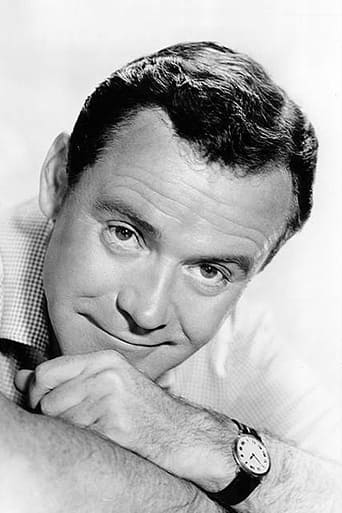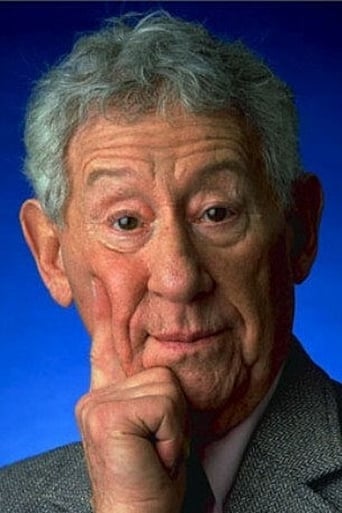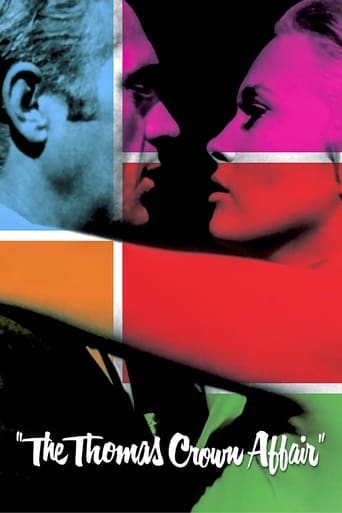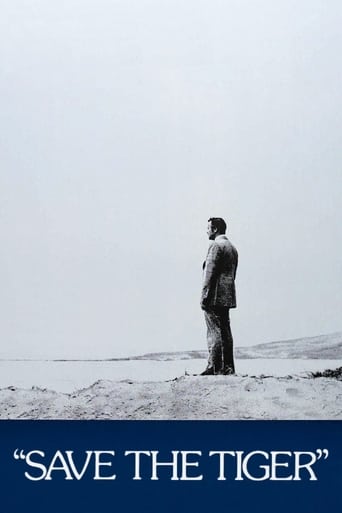

Save the Tiger (1973)
A businessman's professional struggles begin to conflict with his personal life over the course of two days.
Watch Trailer
Cast
Similar titles
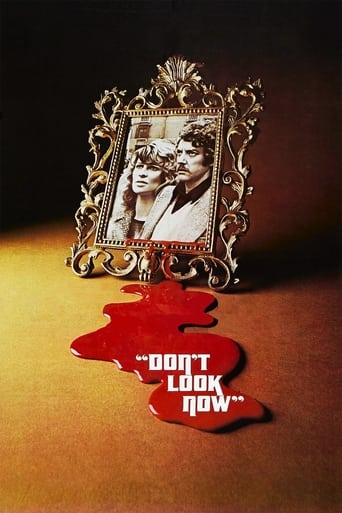
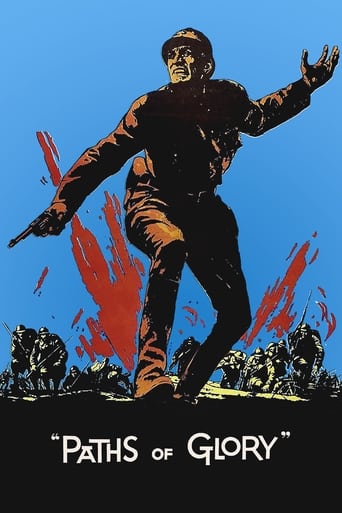

Reviews
hyped garbage
An Exercise In Nonsense
A film with more than the usual spoiler issues. Talking about it in any detail feels akin to handing you a gift-wrapped present and saying, "I hope you like it -- It's a thriller about a diabolical secret experiment."
Great example of an old-fashioned, pure-at-heart escapist event movie that doesn't pretend to be anything that it's not and has boat loads of fun being its own ludicrous self.
EVERYONE has films that for some strange reason, seemingly completely out of sync with one's age and place and station in life at the time, resonate and then some, impacting that person for years to come.For me, the two that stand out in that regard are 1968's "The Swimmer" and 1973's "Save the Tiger," both dark character studies dealing with morality, amorality and the twists and turns of complex lives not always so well lived by their middle-aged characters.Why I identified with these characters at such an early age myself I have no idea, only that their serpentine screen dilemmas provided a kind of moral road map in the real world, at least for me, and did their jobs as cinematic storytellers in staying with me all these years, still."The Swimmer," taken from a short story by John Cheever, stars Burt Lancaster as Neddy, an upper-class Connecticut man whom we find lounging poolside with friends in an affluent suburb.It occurs to him that he can "swim home" by visiting pools of friends and acquaintances, a route that he sees as a kind of "river."As the man swims, we begin to understand more and more about his life, or think we do, and he evolves through conversations, confrontations and offhand comments, until he winds up ingloriously at a public pool and, finally, standing shivering in the pouring rain before the gates of his mansion in one of filmdom's most surprising endings.Many fascinating characters people the film, played by many a recognizable face, including Joan Rivers (yes, that Joan Rivers), John Garfield Jr. (son of the great noir star), Janice Rule, Marge Champion (dancer-choreographer Gower Champion's better half), Kim Hunter and Janet Landgard.The film was directed by Frank Perry (with some scenes overseen by Robert Redford's frequent collaborator, Sydney Pollack, who is uncredited), with a screenplay by Perry's wife, Eleanor."Save the Tiger" stars Jack Lemmon as Harry Stoner, a clothing manufacturer who is undergoing the loss of youthful idealism as he weighs whether or not to pay an arsonist to torch his factory so he can survive financially through the insurance settlement. His friend and business partner is played by an extraordinarily effective Jack Gilford, a rubber-faced actor with the saddest eyes you'll ever see best known to a generation as the Cracker Jack man.Like Lancaster's Neddy in "The Swimmer," Lemmon's Stoner in "Tiger" is undergoing more than an evolution, but a breakdown, not only emotionally, but spiritually as well. Each story is a type of first-person morality play as seen through the eyes of these central characters.Lemmon won the best actor Oscar for his performance (beating out, among others, Redford, for his turn in "The Sting"), and the film was voted best drama by the Writers Guild of America.Both films seem to have evaporated into the mists of time, little remembered or considered by generations that came after. But they've stayed with me, I like to think because they were both beautifully rendered and had something worthwhile to say, expressing it uniquely and well. If you're in the mood for thought-provoking character studies that will stay with you long after viewing, and for all the right reasons, I recommend giving them a look.
Save the Tiger is the account of a day and a half in Harry Stoner's life. John G. Avildsen sets the tone with a deliberately paced opening scene: In a frigid dawn, the heated swimming pool steams grimly outside his Tudor manse. The film thoughtfully unfolds, and we spend what feels like real time (in a good way) comfortably easing into Harry's routine. We learn he sends his daughter to a Swiss finishing school, drives a limousine equipped with a telephone and has a wife who suggests that he see a Dr. Frankfurter to cure his nightmares. He manages a huge amount of people, he helps fuel the economy, he pays his . . . well, last year he didn't actually pay his taxes. He and his partner did a nice dance with the IRS, who hopefully won't figure that out. It opens when Harry wakes up from a nightmare, and it closes with some kids who don't need him as a utility infielder in their baseball game. Harry is a partner in a dress-manufacturing firm, and this is his big day as it's the day when he presents his new line to the out-of-town buyers. Countless things happen to Harry during the day. A buyer almost dies of a heart attack on him, he has a couple of deeply reflective conversations (one with an ancient European tailor, one with the last of the beatniks) and he plots to have one of his warehouses set on fire.And still, the entire time, his mind is on other things. He is plagued by his recollection of how simple life was in the 1940s. The title comes from a campaign to save tigers from extinction to which Stoner contributes. Then later on beatnik tells him that she read in the National Geographic about how tigers and other wild animals return to places of remembered beauty to die. Harry's place of remembered beauty is a professional baseball lineup, the Brooklyn team in the 1940s, the boys of summer. Harry was not such a bad ball player himself at one time. Now he deceives, pimps, steals designs from his rivals and finds himself negotiating with an arsonist. He wrestles with the guilt of surviving the war and yet losing touch with the ideals for which his friends died. He can't entirely grasp what went awry. His dream was to meet a budget, not being on one.Save the Tiger is indeed invigorating in its offering of apprehensions and dismay brought out into the open, the handling of notions and intimate answers to the perceived moral dilemmas of modern times, and the puncturing of stereotypes that have clenched many into angles where they cannot comprehend the people with whom they share the world and cannot truly grasp the intricacies and dichotomies that make up the layers of daily life. But Save the Tiger is primarily a monolithic piece of movie acting. Jack Lemmon carries this great movie, which he was determined to get made, by the very impact of his performance as Harry. He makes this character so persuasive that we're mesmerized. Gilford's eye and ear in his altercations with Lemmon bring a sort of contrast. They persuade us they've been having this same fight for 20 years. There are countless other good performances in the movie too, particularly Thayer David's professional arsonist and Laurie Heineman's hippie girl.There's barely a topical subject that isn't referred to, occasionally two or three times. Save the Tiger is an implosion of writer Steven Shagan's philosophical stockpile over the late 1960s and early '70s, as well as by far director Avildsen's most triumphant attempt to interpret the mold of 1930s and '40s characters, spirit and narrative into a misanthropic and progressively autonomous 1970s. Yet the movie's scrutiny of topical subjects isn't crucial to what makes it exhilarating. When Jack Lemmon and his partner Jack Gilford are feuding over the ethics of committing fraud, we aren't listening to the substance of the altercation quite as much as we're relishing the smoothness of its fabric. Lemmon and Gilford pack such vitality, such agility and banter into their carriage of the dialogue that their scenes together have a life alternately apart from the movie's indications.No, the movie's not philosophically right as rain. Nothing is! Naturally there are disfigurements in Harry Stoner's character, and we shouldn't let him go scot free feeling so idealistic and nostalgic. Yet my whole analysis is askew, it feels like. The exhilaration to be had at this movie comes from the way the performers and John G. Avildsen distill a sequence of scenes that are human, temperamental, crimson. We have spent the day with Harry, and owing to Lemmon's performance, he won't be consigned to oblivion, not like Lou Gehrig, Joe Penner or Henry Wallace.
"Save the Tiger", my all-time favorite film (followed closely by "Network") tells the life of Harry Stoner (Jack Lemmon in an Oscar-winning performance) during one day in Los Angeles, where he contemplates burning down his warehouse for the insurance money due to his "ballet with the books". As he contemplates arson, he regresses to his past and wishes for a simple and more easy time. Jack Gilfrod (also Oscar nominated and also deserving) offers strong support as Harry's partner. All in all, a touching and very emotional movie, unprecedent by any film since or before. Also Oscar nomianted for Steve Shagan's script. Better than director John G. Avildsen's follow up "Rocky" (the movie that "Network" should have won over).
This is about a dress manufacturer named Harry Stoner (Jack Lemmon). He hates his job and has to pimp out for people just to get them to buy his outfits. He's even considering arson to cover up some mistakes. He misses his youthful life and wants to go back to a time when things were easier and quieter.This isn't a plot driven movie--it's more of a character study than anything else. It's a slow movie and I found the observations in the script pretty obvious (but they may not have been in 1972). Also it's depressing seeing what Stoner has to do to succeed. This would probably be unbearable to watch if the acting weren't so good. Lemmon rightfully won a Best Actor Oscar for this. He's just incredible! You see him struggling to survive and dreaming about the good old days. Jack Gilford matches him as a business associate. In fact he was nominated for Best Supporting Actor--but didn't win. Also Thayer Davis is just wonderful in his two short scenes as Charlie Robbins. He doesn't move a muscle on his face but you can't stop watching him. This is not for everybody. It's slow and bleak with very little of a plot--also it bombed in theatres. But, for acting alone, this is a must-see. I give it a 7.
